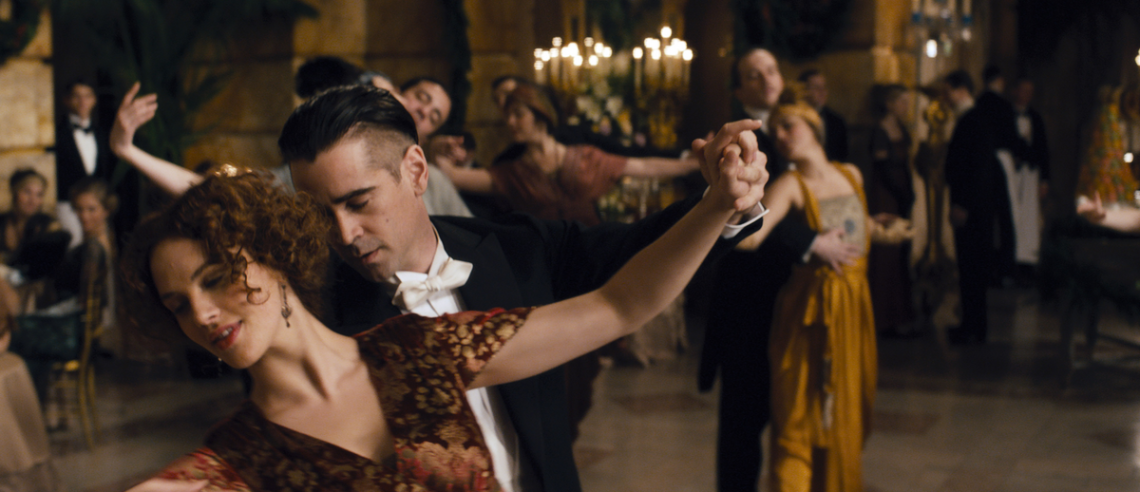Carrying that seasonal feeling of freezing rain and dreary sunless days is unfortunately a movie meant to warm the hearts of its audience. Winter’s Tale is a fantasy story out of time and a movie terribly constructed. I can only imagine it will make a great companion piece with Labor Day, with its thematic similarity of falling in love with your home invader. But I’m no cold-blooded critic, so let me count the ways this movie failed to find my affection:
Peter Lake (Colin Farrell), a drifter with a foul haircut, is seeking to answer questions about his past. In flashback, we learn he was once a former thief/unknowing demon apprentice at the dawn of the 20th century, falling in love with the most tragic of red-headed heroines, Beverly (Jessica Brown Findley). She suffers from a romantic case of tuberculosis, but no matter, Lake sticks by her side and defends her against his bloodthirsty demon-boss Pearly Soames (a dastardly Russell Crowe). Apparently, people have miracles inside them, light is magic, and demons wage war because insert extraneous plot details here.
Familiar story tropes aside, this old-as-time tale seems as stale as a bad saltine cracker. It crumbles in the hands of its director/screenwriter, Akiva Goldsman, who can’t seem to decide which parts of the story to keep or nix, leaving a hackneyed mushy narrative with silly one-liners, an overbearing voice over, and lots of Farrell tears. The dreadful camera work hovers between messy handheld and misframed static shots. With so much riding on a special effects horse, perhaps more care could have gone into making the sets look seamlessly integrated and the animation better rendered. The editing too, does no favors for the story, and the cinematic crimes amount to an ugly picture.
Plot holes are gaping sink holes swallowing the good will of its audience. The story is updated to 2014 from its original setting of 1983, which screws a few details like a minor character who’s now a 100-year-old newspaper editor. There’s dialog dedicated to rules that are less than set in stone, which makes them a rather waste of screen time. The flying pony has a name, but we never hear it, and Crowe’s character refers to it as a dog without explanation.
The image imprinted of “the redheaded girl” in both Peter’s and Pearly’s mind is laughably amateurish. As to why Peter chalks that image out in the public sidewalks of New York, rather than in a sketchbook, I’ll never know. Later, Lake runs into one of the worst on-screen depictions of a journalist cinema has seen. Lake takes the reporter at this word, and doesn’t questions a man who hasn’t aged in 100 years. The singular sex scene comes complete with a wilting piano in the background, qualifying this as a quintessential Hollywood version of deflowering a virgin. If you’re not stifling your laughter yet, there’s one awkward post-coitus moment for the books.
Winter’s Tale‘s highlights are dim silver linings to the muck onscreen. Russell Crowe commendably chews the scenery as a demon, and really is the only one allowed any fun in this flop. Eva Marie Saint makes for a great cameo, as does the film’s Lucifer who rocks a Jimi Hendrix shirt in 1915. No complaints from me on the New Year’s party scene that features one of the best Viennese Waltz numbers in recent memory.
I hope for the book’s sake, the dialog and story is much better than what we’re presented with onscreen. If you’re familiar with the concept of hate-watching or ironically loving a movie, then by all means, enjoy ripping the movie to shreds with your friends at the bar next door. Winter’s Tale, in all its lovey-dovey earnestness, is easy picking. I can sum up my response in the manner of one of the characters, horse shit happens.




















